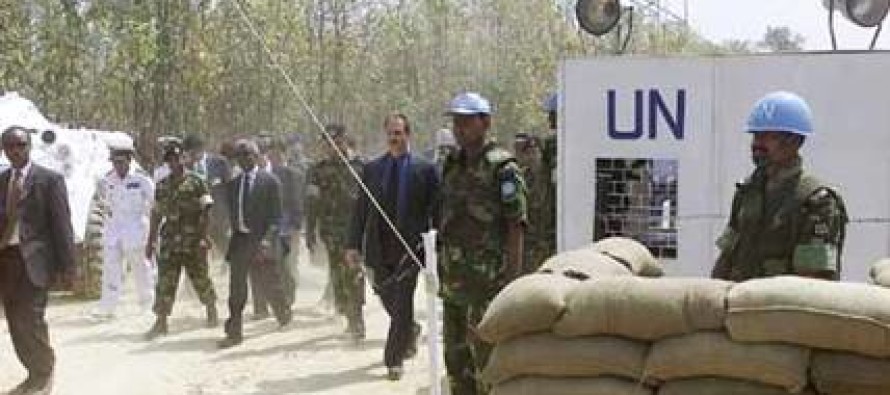Bangladesh’s 22nd year of Peacekeeping Mission across the World

This year, Bangladesh has stepped into 22nd year of participation in UN peacekeeping mission across the world. Bangladesh armed forces have set values, norms and professionalism wherever they went. Their role was admired by successive Secretaries General of the UN.
In 1988, Bangladesh first joined the UN peacekeeping mission whose participants are known as “Blue Helmets”, (after the blue colour of the UN flag) with only 15 military observers.
So far 70,000 soldiers have participated in 35 peacekeeping missions in 26 countries which included Cambodia, Bosnia, Georgia, Mozambique, Namibia, Liberia, and Sierra Leone. Bangladeshi army General led the peacekeeping mission in Mozambique in 1994 and another army General in Georgia in 2002. Currently one Bangladeshi General is leading UN peacekeeping mission in Liberia.
Currently 10,000 Bangladeshi personnel (soldiers, and police) are deployed in peacekeeping missions in 12 countries.
Since the peacekeeping missions are often risky in tribal-torn conflicts in Africa, there have been casualties of Bangladeshi peacekeeping troops (nine soldiers) in the Democratic Republic of Congo on 25th February, 2005. As of May 2009, a total of 91 valiant Bangladeshi peacekeepers died for the cause of world peace.
Bangladesh observes every year on 29th May International Day of UN Peacekeepers. Bangladesh has set up an Institute of Peace Support Operation Training for the armed forces at Rajendrapur, near Dhaka.
Bangladesh can hold its head high in the global arena because the Bangladeshi soldiers have earned the gratitude of millions in lands far distant from Bangladesh. They have helped restore tranquility and peace in many war-torn parts of the globe and have ushered in an era of hope in countries which had only known despair and war.
Since participation in UN peacekeeping mission is an important component of Bangladesh foreign policy, some analysts suggest that ordinary soldiers of Bangladesh cannot speak English well and before they are sent overseas, they should be trained in English language because the soldiers mix with soldiers of other countries and the common language between them is either English or French. At present it is understood that the Bangladesh army officers help them in carrying out their duties..
Another reason is gradually other countries such as India have expressed interest in peacekeeping mission and Indian soldiers can speak English when they are sent overseas and so also soldiers from other Asian countries.
Peacekeeping different from peace-making and peace-building missions:
Peacekeeping mission is to be distinguished from peace-making and peace-building missions.
Peace-making is usually aimed at cessation of hostilities and restoration of peace while peacekeeping is to maintain peace, agreed between parties. That means once peace is restored, peacekeeping is to ensure that peace remains in the area.
Peace-building refers to efforts aimed at economic development, institution building, and more generally the creation or restoration within the countries of the conditions necessary to make them stable and peaceful after wars. It may involve rehabilitation of people and reconstruction of infrastructures. Peace-building after war is to help ensure there is no recurrence of war.
In future Bangladesh soldiers may have to participate in the UN peace-making or peace-building missions of the UN. In the light of this, Bangladesh armed forces need rigorous training on the methods or mechanisms used for peace-making or peace-building.
By Barrister Harun ur Rashid
Former Bangladesh Ambassador to the UN, Geneva


